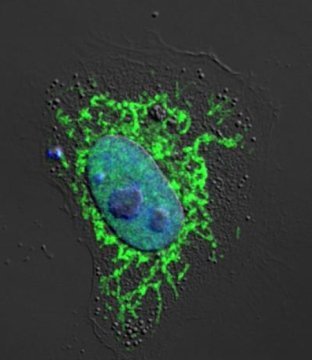
A human host protein that weakens the immune system in HIV affected patients has been identified by the scientists from the University of North Carolina and the Sanford Burnham Prebys Medical Discovery Institute. The insights gathered from the study published in Cell, could potentially lead to improved HIV antiviral therapies, and may even facilitate the advancement of a new approach to cancer treatments.
The research provides an in-depth understanding of the reasons behind the human immune system's failure to fight against HIV transmission. According to the scientists, NLRX1 - a human host protein, is responsible for weakening the immune response to HIV viruses. The main objective of the research was to uncover the underlying mechanism by which NLRX1 could block the function of the immune system and promote HIV infection.
To counter the HIV virus, the immune response system is required to frame a powerful counter attack in the initial stages that can curb the viral invasion from the root. The human immune system is designed to produce a series of chemical molecules (interferons and cytokines) that can switch on the cytotoxic T cells to initiate the attack on pathogens. However, the HIV virus uses NLRX1 host protein to block the production of interferons, thus leaving the innate immune system without its most important weapon to fight against the HIV invasion.

Confocal fluorescence microscopy showingNLRX1 (green) in a HeLa cell (blue, nuclear stain).
Image Credit: Haitao Guo
The research shows that NLRX1 directly interacts with a sensor called STING (stimulator of interferon genes) and blocks its ability to interact with an enzyme called TBK1. The interaction between STING and TBK1 is vital for the production of interferons, without which the immune system cannot launch its attack on the HIV virus. As a result, the HIV virus gets a free passage into the immune system and starts to weaken its functioning.
In medical terms, the mechanism of blocking the normal function of the immune system is known as immune checkpoint. The checkpoints are virtual barricades that prevent the over-activation of the immune system. These are essentially meant to prevent damages caused by immunological chemicals to the healthy cells. The HIV virus exploits this checkpoint to escape detection by the immune system.
Even the cancer cells often take the advantage of such checkpoints to sneak through the immune system. In recent years, scientists have come up with a special group of drugs, known as checkpoint inhibitors, for prompting the immune system into detecting the cancer causing cells. Checkpoint inhibitors have proved to be quite efficient in the treatment of cancer and the researchers hope to replicate the same success story by developing checkpoint inhibitors for HIV viruses as well.
This research has shown that NLRX1 acts as a checkpoint for STING. The researchers believe that the need of the hour is to come up with a STING inhibitor drug. The pharmaceutical sector has already invested a significant amount of efforts and funds in this regard. The day may not be too far when the doctors will be equipped with the next generation checkpoint inhibitors to fight against the lethal HIV invasion.

Like what you read (without annoying ads :) ) ? Then please upvote our posts and follow us for the best daily science news on SteemIt!
Hi! I am a content-detection robot. This post is to help manual curators; I have NOT flagged you.
Here is similar content:
http://sciencenewsjournal.com/scientists-identify-host-protein-weakens-immune-response-hiv/
@cheetah and @anyx we are still waiting for your response on this: So we need to add a link here to our site and on our site to here? Sorry but we won't be doing that because that is like doing a two way link exchange for SEO and that is what gets you a penalty on Google.
We can put a source link inside each of our steem posts but we won't be linking to them from our website. Does that work for you?